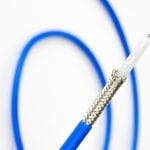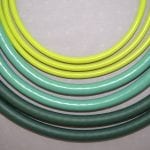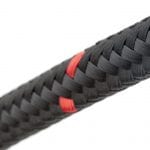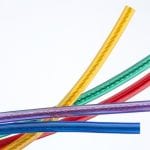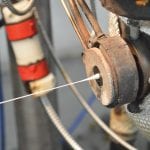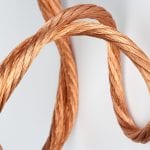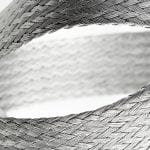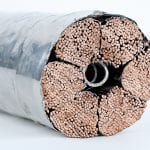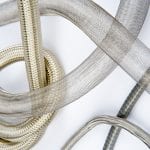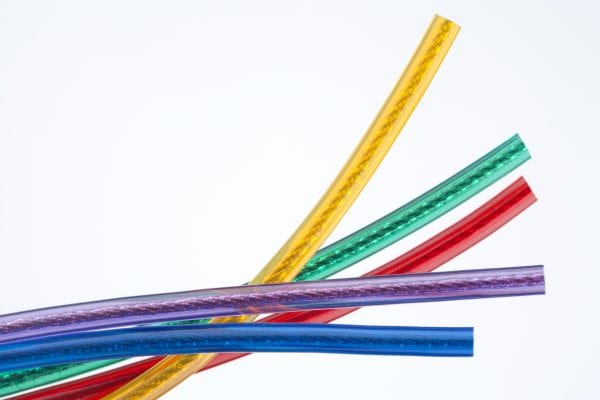Primary Insulations
Primary insulations (insulations applied directly onto conductors) are generally hard insulations that will resist deformation and damage during cabling and other subsequent processing operations; this ensures a high measure of quality both for safety considerations and electrical performance.
Polyolefin – some of the least expensive plastics available in wire and cable, Olefins actually have very good electrical properties and as a result are commonly used in commodity signal wires such as USB and CAT5 Cables. Their main drawback is their high relative stiffness and low temperature rating (80°C).
PVC – The work horse of the wire and cable industry PVC is often used a primary insulation for its advantageous mechanical properties and its inherent flame resistance.
Polyester – In addition to having higher temperature ratings and lower embrittlement temperatures than many commonly used plastics, Polyester also offers improved abrasion resistance and can be extruded in walls thinner than many other materials.
Fluoropolymers – Developed as extrudable versions of PTFE all Fluoropolymers have very high temperature ratings, very low coefficients of friction, are extremely flame retardant and have excellent dielectric strength.
- PFA – The first extrudable Fluoropolymer developed. PFA has an extremely low dielectric constant and can be extruded with ultra-thin walls and is therefore the material of choice for miniature signal wire applications.
- FEP – A Cost effective alternative to PFA for applications that still require high temperature ratings or excellent electrical performance.
- ETFE – Developed as a Fluoropolymer with improved mechanical properties, ETFE has improved resistance to Cold Flow and increased abrasion resistance.
Silicone Rubber – Although not commonly used a primary extrusion due to its softness, Silicone Rubber is occasionally used for applications that require ultra-flexible cables.
Jacket Insulations
Compounds used for jacket insulation are primarily flexible materials that are selected based on the requirements of the customer’s application.
PVC – Heavily plasticized PVC’s can offer a nice combination of flexibility and flame resistance.
Polyurethane – Due to its excellent tear strength and toughness Polyurethane is a preferred option for cables that will have to withstand mechanical abuse.
Thermoplastic Elastomer (TPE) – A blend of thermoplastic resins and thermoset rubbers TPE’s are very flexible jacket materials that still have good mechanical properties and a pleasant feel.
Silicone Rubber – An ultraflexible high temperature material, Silicone Rubber is commonly used for jacketing cables in the medical industry because of its ability to withstand autoclave. New England Wire has also developed NEWtuf® Reinforced Silicone to improve mechanical performance and offers Parylene and SLEEK™ coating to improve the surface texture of Silicone Rubber.
Polyester – A more rigid material than is commonly used in cable jackets, Polyester has excellent resistance to fluids and fuels and is highly abrasion resistant.
Fluoropolymers – Although Fluoropolymers are very stiff options for use as a jacket, their excellent chemical resistance, high temperature rating and natural resistance to fire makes them a good option for cables that will have to survive in particularly harsh environments.








